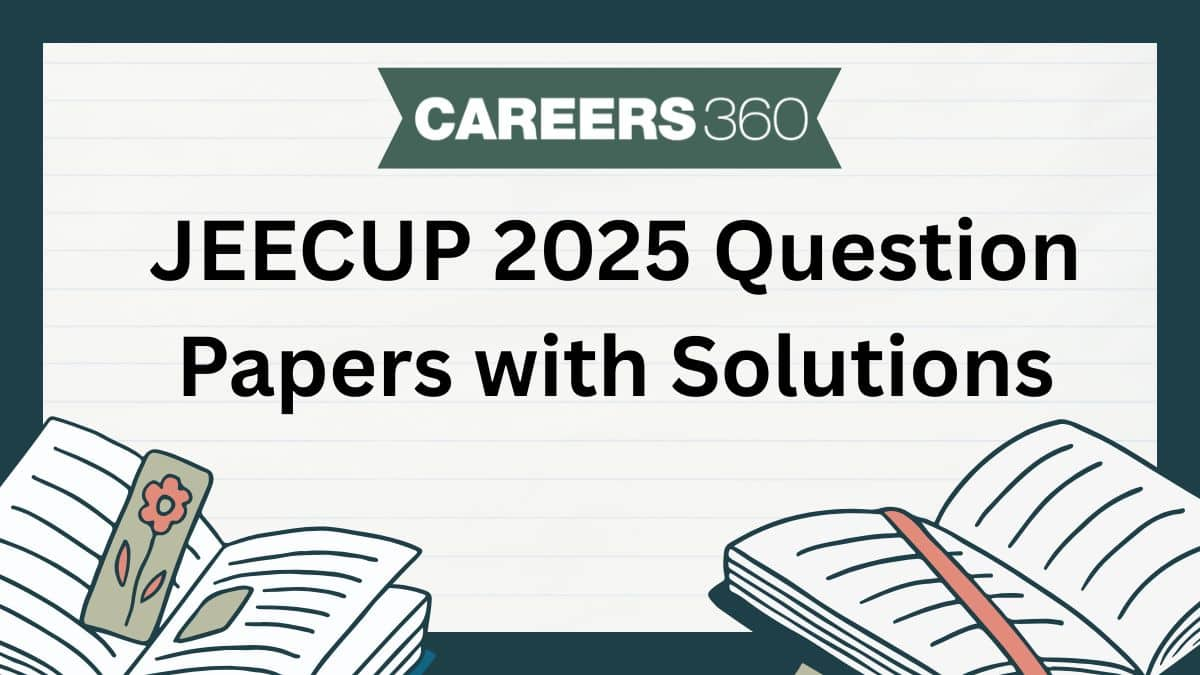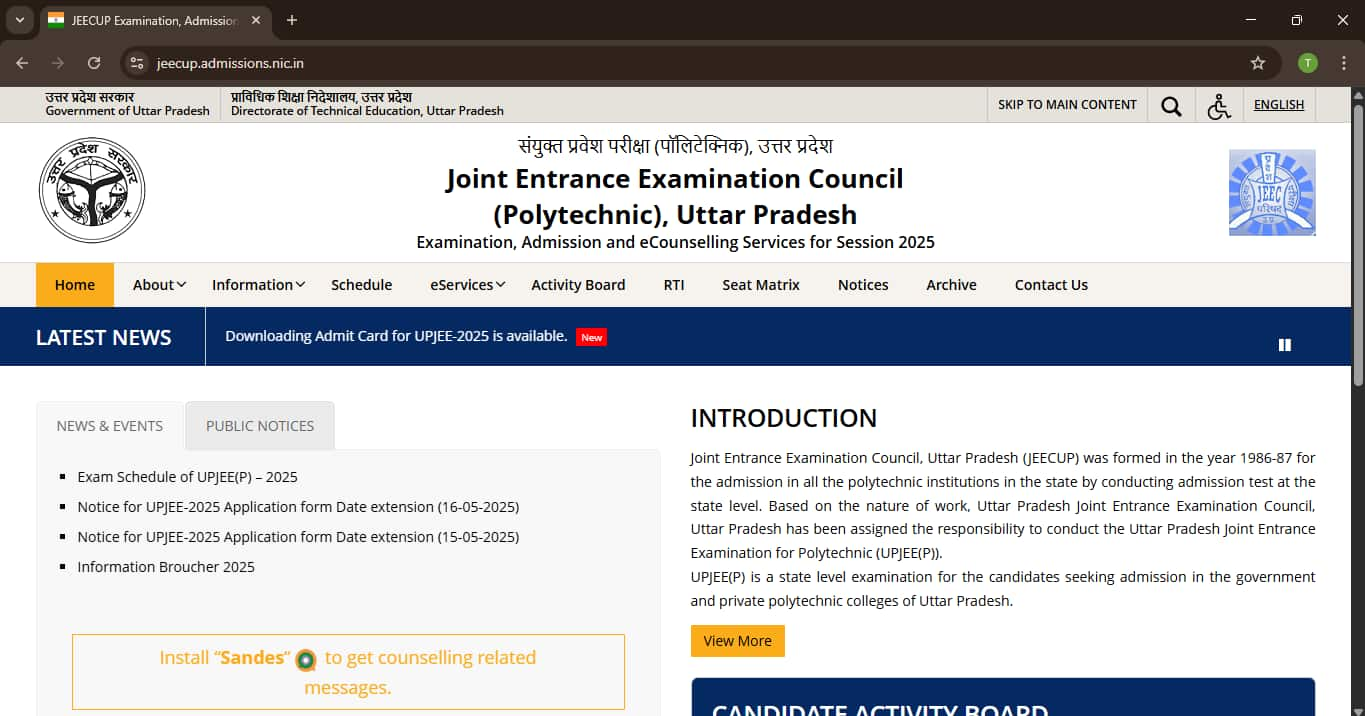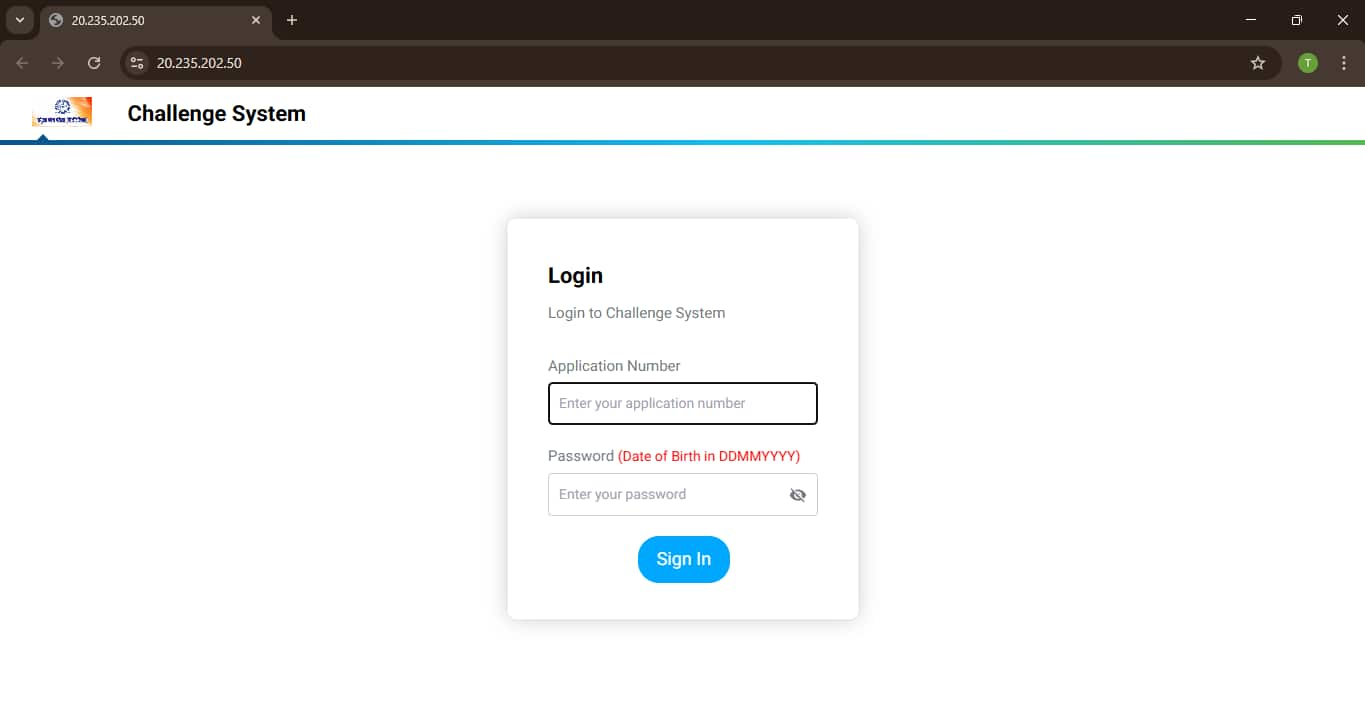To get admission in Government Polytechnic Jaunpur through JEECUP, aim for a score of 200+ for better chances.
In 2024, Electronics Engineering had a closing rank of around 16,126 in Round 1 and extended to 44,724 in later rounds.
Cutoff marks vary by category. General needs around 79+ marks,
JEECUP 2025 Question Papers with Solutions PDF – Download All Shifts
The Joint Entrance Examination Council Uttar Pradesh (JEECUP) conducts the JEECUP exam. In this article, we shall particularly dive into day-wise JEECUP 2025 question papers along with detailed solutions. Before diving into more topics, lets understand a little about the exam. The JEECUP exam is also known as UP Polytechnic Entrance Exam - conducted mainly for admission into diploma, post-diploma and other lateral entry courses in polytechnic institutions all across Uttar Pradesh. This is a state-level exam that is a gateway for students aiming to pursue technical and vocational education in various engineering as well as non-engineering streams.JEE CUP question paper with answer key released for matching.
This Story also Contains
- JEECUP Question Paper with Answer Key
- JEECUP 2025 Exam Dates and Timing
- JEECUP Official Question Paper with Answer Key
- JEECUP 2025 Question Paper with Solutions

Details for all the shifts from june 5 to June 13 are provided below as the exam is over. The official question paper and answer key has been released. Check the article below for more details!
Direct Link to Download the JEECUP 2025 Question Paper
JEECUP Question Paper with Answer Key
Aspirants can refer to the given links for the JEECUP sample papers.
JEECUP 2025 Exam Dates and Timing
The JEECUP exam will be conducted in Computer Based Test Mode. The following is the detail for date and time:
Date | Shift 1 | Shift 2 |
June 5, 2025 to June 13, 2025 | 9:00 AM – 11:30 AM | 2:00 PM – 4:30 PM |
JEECUP Official Question Paper with Answer Key
Check the steps below to download the question paper with solution:
Step 1: Open the link for Official Website.

Step 2: Scroll down and click on the "Questions- Answer Key Matching and Objections for All Group " option.

Step 3: Enter your details and you will then be able to download the resource! Let's now have a look at how the question papers have been for each shift distinctively!
JEECUP 2025 Question Paper with Solutions
Out here you will be able to view the updates after each shift. All the shifts are over and updates are available below. In some shifts, the question papers are being researched and available soon, for those areas we have provided a detailed analysis for you to understand how the paper was.
June 13 Shift 2:
The overall difficulty level of Shift 2 was slightly easier than Shift 1, with more direct questions.
Mathematics section emphasized Algebra, Probability, and Trigonometry; few lengthy problems but mostly straightforward.
Physics section included standard questions from Kinematics, Electrostatics, and Optics; numerical questions were calculative but not too complex.
Chemistry section again remained the scoring part with basic questions from Inorganic and Organic Chemistry.
Time management played a crucial role, as the paper was designed to test speed and accuracy with fewer twisted questions.
June 13 Shift 1:
The overall difficulty level of Shift 1 was moderate, with a balanced mix of theoretical and numerical questions.
Mathematics section had a few tricky questions from Calculus and Coordinate Geometry; Algebra was relatively easier.
Physics section was moderately challenging, with questions from Mechanics, Heat & Thermodynamics, and Modern Physics being prominent.
Chemistry section was easier compared to the other subjects, with a focus on Organic Chemistry and basic concepts from Physical Chemistry.
The paper had a good number of conceptual and formula-based questions, requiring strong fundamentals and quick calculations.
June 12 Shift 2:
Mathematics: Increased focus on geometry and trigonometry, requiring strong spatial reasoning.
Physics: More numerical-based questions, testing application of formulas.
Chemistry: Theoretical questions with scenarios to assess conceptual understanding.
Difficulty Level: Slightly higher than Shift 1, demanding quicker problem-solving skills.
Time Management: Candidates emphasized the importance of pacing due to the increased difficulty.
June 12 Shift 1:
Mathematics: Emphasis on number systems, coordinate geometry, and algebraic identities.
Physics: Conceptual questions with a focus on mechanics and thermodynamics.
Chemistry: Balanced mix of organic, inorganic, and physical chemistry questions.
Difficulty Level: Generally moderate, with a few challenging questions to test depth of knowledge.
Time Management: Students reported the need for efficient time allocation across sections.
June 11 Shift 2:
Maths: Increased focus on geometry and trigonometry, requiring strong spatial reasoning.
Physics: More numerical-based questions, testing application of formulas.
Chemistry: Theoretical questions with scenarios to assess conceptual understanding.
Difficulty Level: Slightly higher than Shift 1, demanding quicker problem-solving skills.
Time Management: Candidates emphasized the importance of pacing due to the increased difficulty.
June 11 Shift 1:
Mathematics: Emphasis on number systems, coordinate geometry, and algebraic identities.
Physics: Conceptual questions with a focus on mechanics and thermodynamics.
Chemistry: Balanced mix of organic, inorganic, and physical chemistry questions.
Difficulty Level: Generally moderate, with a few challenging questions to test depth of knowledge.
Time Management: Students reported the need for efficient time allocation across sections.
June 10 Shift 2:
Maths was above moderate with focus on surface area, volume, and diagonal formulas.
Shortcut tricks were used for solving questions quickly (e.g., 1/2 area = 1/4 total).
Physics and Chemistry maintained similar NCERT-level conceptual focus.
Group D syllabus included 35% reasoning, 10% maths, and general awareness.
Group K1 and L exam pattern highlighted subject-specific and technical weightage.
June 10 Shift 1:
Maths was moderate with questions from mensuration, geometry, and cube/cuboid concepts.
A shortcut-based area question involved squaring after halving dimensions.
Physics included conceptual questions, likely from basic electricity and units.
Chemistry had application-based questions, including drug-related topics.
Biology was easy, with direct NCERT-based questions like hemoglobin and digestion.
June 9 Shift 2:
Physics in Shift 2 was more theoretical, with an emphasis on Work, Energy And Power .
Chemistry posed a bit more difficulty, requiring in-depth understanding of the concepts.
Mathematics was manageable but included a few higher difficulty questions for those well-prepared.
The overall pattern tested students’ conceptual clarity and problem-solving abilities across subjects.
June 9 Shift 1:
The exam featured a balanced mix of conceptual and application-based questions.
Physics and Chemistry were more challenging, focusing on vector products and Laws Of Motion.
Mathematics was relatively easier, with straightforward problems based on basic formulas.
Overall, the paper tested both theoretical knowledge and practical problem-solving skills.
June 6 Shift 2
Maths questions leaned towards geometry—circle tangents, angle POA calculation using triangle angle sum.
Concept of equal tangents from an external point and right-angle property from center to tangent was tested.
Physics repeated concave lens power question and emphasized sign convention (-50D).
Chemistry repeated element vs. compound classification and the law of constant proportion.
Shift 2 involved more visual reasoning and spatial understanding in maths and geometry compared to Shift 1.
June 6 Shift 1
Maths questions focused on number system, coordinate geometry (midpoint), quadratic factorization, and LCM-HCF formulas.
Image formation by concave mirror was tested—virtual, erect, and magnified image when object lies between pole and focus.
Chemistry had straightforward questions on identifying elements vs. compounds (e.g., Helium as an element).
Law of chemical combination question appeared—mass of compound equals sum of constituent elements' masses.
June 5 Shift 2
The second shift had a slightly tougher tone, especially in Mathematics, where questions were a bit more application-based.
Physics questions were more numerical in nature, testing a deeper understanding of the concepts, especially related to mechanics and thermodynamics.
Chemistry in this shift was more focused on theoretical aspects, with questions on topics like Chemical Bonding And Molecular Structure.
Overall, Shift 2 was seen as slightly more challenging than Shift 1, requiring students to be more precise and time-efficient.
June 5 Shift 1
The first shift of the JEECUP exam was moderate in difficulty, with a balanced mix of Physics, Chemistry, and Mathematics questions.
Physics had conceptual questions, but they were relatively straightforward, with no tricky formulas.
Chemistry focused mainly on Organic and Inorganic Chemistry, with a few questions related to practical applications.
Math questions were moderately challenging, with a few questions requiring critical thinking and problem-solving skills.
JEECUP 2025 Exam Pattern
You can find information about the exam paper pattern below:
Particulars | Details |
Mode of Exam | Online ( computer based test) |
Duration of Exam | 3 Hours |
Types of Questions | 100 Multiple Choice Questions |
Medium of Examination | English and Hindi |
Marking Scheme |
|
Also Check:
Frequently Asked Questions (FAQs)
The Joint Entrance Examination Council, Uttar Pradesh (JEECUP), conducts the UP Polytechnic Entrance Exam every year.
JEECUP 2025 will be conducted in Computer-Based Test (CBT) mode.
The total duration of the JEECUP 2025 exam is 2 hours and 30 minutes.
JEECUP is conducted for admission into diploma, post-diploma, and lateral entry courses in polytechnic institutions across Uttar Pradesh.
Yes, 1 mark will be deducted for each incorrect answer and 4 marks awarded for each correct answer.
Popular Courses and Specializations
List of colleges accepting JEECUP
Browse Engineering Colleges by State
Questions related to JEECUP
On Question asked by student community
The JEECUP Cutoff 2025 for Information Technology is different in all the Government Polytechnic colleges. Can you please elaborate which Government Polytechnic you are referring to?
Hello,
The JEECUP 2026 syllabus will be released along with the official notification in January 2026. The exam itself is expected to be conducted in June 2026.
For more details access below mentioned link:
https://engineering.careers360.com/articles/jeecup-2026
Hope it helps.
Hii
For admission in Government Polytechnic Jaunpur through JEECUP, you need around 200+ marks if you are from general category, because it will keep on safer side.
About rank admission closes around 16,000 for normal entry in some popular branches like electronic engineering.
If you have this rank and marks
To get into Government Polytechnic, Jaunpur through JEECUP:
-
In 2024 , the closing rank for Diploma in Electronics Engineering (regular) was around 16,126 for the General category in Round 1, and up to 44,724 in later rounds.
-
For Diploma in Electronics Engineering (Lateral Entry) , the cutoff was as low
Hello
